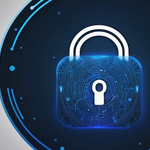
Virtual Private Networks have become increasingly integral to digital security practices for iPhone users, transforming how millions of people safeguard their online communications and personal data across both private and public network environments. A VPN for iPhone functions as a sophisticated encryption and anonymization layer that fundamentally restructures how data flows between your device and the wider internet, creating what effectively amounts to a private tunnel through which all internet traffic must pass. This comprehensive report examines the multifaceted aspects of VPN technology specifically as it applies to iPhone users, exploring the technical underpinnings of how these services operate, the genuine security and privacy advantages they provide, the practical considerations involved in their implementation, and the critical distinctions between competing service offerings that saturate today’s increasingly crowded VPN marketplace.
Understanding VPN Technology on iPhone: Definition and Core Function
A Virtual Private Network represents a Software as a Service product that operates through the encryption of user online activity while simultaneously masking the user’s real Internet Protocol address through the substitution of an alternative IP address provided by the VPN service’s remote servers. When examining VPN functionality specifically within the iOS ecosystem, it becomes apparent that the technology fundamentally operates through a process that essentially routes all of an iPhone’s digital traffic through remote servers typically positioned in various geographic locations across the world. By executing this routing mechanism, the VPN service accomplishes several simultaneously important objectives, including establishing a secure encrypted connection, hiding the device’s authentic location, and preventing both hackers and internet service providers from monitoring activity on the connection or accessing transmitted data.
The essential distinction that separates iPhone VPN implementation from desktop implementations lies in Apple’s particular approach to system-level network security integration. Unlike Android devices that often support more flexible VPN architecture implementations, iPhones operate within a more constrained but arguably more secure framework where VPN functionality must integrate with iOS’s built-in security protocols and device management systems. This architectural difference means that iPhone VPN implementations necessarily work within Apple’s defined parameters, utilizing specific protocols that the company has determined to be secure enough for use on its platform. The company has historically taken an opinionated stance regarding which encryption standards and authentication methods should be supported, a philosophy that simultaneously limits flexibility while theoretically enhancing security through rigorous vetting.
The importance of understanding that a VPN does not materially change how people fundamentally use the internet cannot be overstated. Rather, the technology simply enhances the ability to enjoy safer online experiences by adding transparent layers of encryption and anonymization that operate automatically between the user and the accessed content. This distinction proves crucial because it clarifies that VPNs are not fundamentally different tools that alter one’s online activities but rather tools that provide protective layers around existing activities. An iPhone user browsing websites, accessing email, streaming content, or banking online performs these activities identically whether or not a VPN is active; the difference lies entirely in the protective characteristics surrounding those activities.
How VPN Technology Functions on iPhone: Technical Mechanisms and Architecture
To comprehend how a VPN protects iPhone users, one must first understand the specific technical process through which data encryption and routing occurs on these devices. When an iPhone user activates a VPN connection through either the native iOS VPN interface or through a third-party VPN application, the device establishes a direct connection to a VPN server, and this connection is itself encrypted before any subsequent data transmission occurs. The VPN service then sends all of the iPhone’s digital traffic through remote servers, which are typically distributed across multiple geographic locations worldwide. Throughout this routing process, the VPN service simultaneously hides the device’s real Internet Protocol address, replacing it completely with the IP address of the VPN service’s servers.
The practical consequence of this routing and masking mechanism means that the connection becomes secure, the device’s actual location becomes hidden, and third parties including internet service providers cannot effectively monitor activity on the connection or access the transmitted data. From a technical standpoint, what occurs is that the iPhone user’s internet traffic gets encrypted and encapsulated within the VPN tunnel before it ever leaves the device. This encrypted data then travels to the VPN server, where it is decrypted and forwarded to the intended destination, whether that destination is a website, an email server, or any other internet service. When data returns from the destination, the VPN server reverses the process, encrypting the incoming data before transmitting it back through the tunnel to the iPhone where it is decrypted and presented to the user’s applications.
The elegance of this architecture lies in its transparency. From the user’s perspective, the iPhone appears to function exactly as it would without a VPN active. Applications send and receive data, websites load, email arrives—all exactly as expected. However, from the perspective of network observers, including ISPs, WiFi hotspot operators, or malicious actors on the same network, the user’s activities remain completely obscured within encrypted tunnel traffic destined only for the VPN server. This means that whereas normally an ISP could potentially observe which websites you visit based on the domain names in your DNS queries and the destination IP addresses of your connections, with a VPN active, the ISP can only see that you are connected to a VPN server; the specific websites you access remain completely hidden.
The specific mechanics of how this encryption occurs depend significantly on which VPN protocol is being used on the iPhone. iOS natively supports several protocols, each with distinct characteristics regarding speed, security, and compatibility. The Internet Key Exchange version 2 protocol, commonly referred to as IKEv2, represents one of the most modern options natively supported by iOS and provides particularly strong security combined with the ability to quickly reestablish connections if the user’s network connection changes, a feature particularly valuable for mobile users who frequently transition between WiFi and cellular networks. The Layer 2 Tunneling Protocol combined with IPSec, designated as L2TP/IPSec, represents an older but still widely supported standard that provides reliable security though with somewhat slower performance characteristics than more modern alternatives. Additionally, iOS supports SSL-VPN implementations when users install dedicated applications from the App Store that provide these capabilities.
VPN Security and Privacy Benefits Specifically for iPhone Users
The security and privacy landscape for iPhone users presents a paradoxical situation that requires careful analysis to properly understand. While it is unquestionably true that the overwhelming volume of mobile malware specifically targets Android handsets rather than iPhones, this statistical reality should not lead iPhone users to complacency regarding security. Indeed, iPhones remain vulnerable to particular categories of cyberattack that malware statistics do not capture, most notably phishing attacks that rely on tricking individuals into voluntarily disclosing sensitive information or taking actions such as clicking malicious links that compromise security or privacy. This vulnerability increases substantially when iPhone users connect to unsecured or public WiFi networks, such as those found at most cafes, restaurants, shops, and other public venues.
The specific security advantage that a VPN provides for iPhone users on public WiFi networks cannot be overstated. When an iPhone user connects to an unsecured public WiFi hotspot without a VPN, that connection is typically completely unencrypted from the user’s device to the WiFi access point. In such circumstances, any malicious actor on the same network using readily available packet-sniffing software could potentially intercept unencrypted traffic, view information being transmitted, or even perform more sophisticated attacks such as creating rogue WiFi networks designed to impersonate legitimate services. A VPN completely eliminates these attack vectors for network-based attackers by encrypting all traffic leaving the iPhone before it ever reaches the potentially compromised WiFi network. Even if a malicious actor successfully intercepts the encrypted traffic flowing to the VPN server, the traffic remains completely indecipherable without access to the encryption keys held exclusively by the legitimate VPN provider.
Beyond the public WiFi security context, VPNs provide iPhone users with substantial privacy benefits that address the reality of contemporary digital surveillance capitalism. Internet Service Providers operating in various jurisdictions maintain the technical capability to monitor iPhone users’ online activity and view which websites are accessed, and in many jurisdictions, ISPs explicitly sell this data to third parties for targeted advertising purposes. A VPN prevents this ISP-level tracking by encrypting all traffic in a way that hides both the destination addresses and the content of communications. Similarly, websites visited by the iPhone user cannot directly observe the user’s true geographic location or device identifiers when a VPN is active, because all traffic arrives from the VPN server’s location rather than the user’s actual location.
Furthermore, VPNs provide iPhone users with protection against certain categories of targeted advertising and behavioral tracking. Numerous websites and services attempt to create comprehensive behavioral profiles of users by tracking their activity across multiple sites, building increasingly detailed pictures of user interests, preferences, and behaviors to enable highly targeted advertising. By masking the user’s IP address, a VPN makes it substantially more difficult for such cross-site tracking to occur, though it should be noted that other tracking mechanisms including browser cookies and behavioral tracking scripts executed directly by websites can still function to some degree even when a VPN is active.
It warrants specific emphasis that for users concerned about protecting particularly sensitive activities, a VPN provides meaningful protection specifically against surveillance at the network level. Users handling sensitive business information, accessing confidential documents, conducting financial transactions, or communicating sensitive personal information benefit substantially from the encryption layer that a VPN provides. Organizations increasingly recommend VPN usage for their employees who access company networks and resources remotely, not because VPNs themselves constitute a complete security solution, but because they do provide meaningful protection for data in transit. However, it remains critically important that VPN users understand the limitations of this protection. A VPN does not protect against malware, phishing attacks, compromised passwords, or application-level vulnerabilities. It specifically protects network-level privacy and provides encryption for data in transit; it should be understood as a complementary security tool rather than a comprehensive security solution.
Methods for Setting Up and Configuring VPNs on iPhone
iPhone users have available to them two primary methodological approaches for implementing VPN functionality on their devices, each approach with distinct advantages, disadvantages, and appropriate use cases. The first and substantially more straightforward approach involves downloading and installing a VPN application from the Apple App Store, while the second requires more technical knowledge and involves manually configuring VPN settings through the iPhone’s native Settings application.
The application-based approach represents the recommended methodology for the vast majority of iPhone users because it substantially simplifies the setup process and automates configuration decisions that would otherwise require technical knowledge. To implement a VPN using this application-based approach, an iPhone user first opens the App Store application on their device, searches for the desired VPN provider’s application, downloads it, and installs it on their iPhone. Once installed, the user launches the VPN application and creates an account, either within the application itself or by first creating an account on the VPN provider’s website. The user then logs into the application using their credentials. Most quality VPN applications employ an intuitive interface featuring a prominent button that users can tap to establish a connection to a VPN server, with the application typically automatically selecting an optimal server based on the user’s location and current network conditions. On first use, iOS will prompt the user to allow the VPN application to add VPN configurations to the device; the user simply taps “Allow” and confirms this permission using their device passcode or biometric authentication. Once this permission is granted, the application handles all subsequent VPN configuration and maintenance automatically, with the user simply toggling a connection button to activate or deactivate VPN protection as needed.
The manual configuration approach, while more complex, may be appropriate for users whose VPN provider does not offer a dedicated iOS application or for users who require specific configuration options not available through the standard application interface. To manually configure a VPN on an iPhone, the user must first navigate to the device’s Settings application, proceed to General, then locate the “VPN & Device Management” option, select “VPN,” and choose “Add VPN Configuration”. At this point, the user must select a VPN protocol from the options supported by iOS, which typically include IKEv2, IPSec, and L2TP/IPSec. The user then fills in required fields including the VPN server’s address, their authentication username and password, the Remote ID if required by the provider, and any other information specific to the VPN provider’s requirements. Once all required information is entered, the user taps “Done” to save the configuration. Subsequently, whenever the user wishes to connect to the VPN, they return to Settings, navigate to VPN, select their configured VPN from the list, and toggle the switch to “On” to establish the connection.
The distinction in user experience between these two approaches proves substantial. Application-based VPNs typically provide features including automatic connection on demand, the ability to select from multiple server locations through an intuitive interface, protocol selection options, and advanced security features such as kill switches and DNS leak protection. Manual configurations provide only the basic VPN connection functionality without access to these advanced features. Additionally, application-based approaches typically provide clearer indicators of connection status and substantially simplified connection management. For these reasons, security professionals and VPN providers uniformly recommend the application-based approach for iPhone users except in specific circumstances where an application is unavailable or where particular technical requirements mandate manual configuration.

VPN Protocols and Encryption Standards for iPhone Users
Understanding the specific technical protocols and encryption standards available to iPhone users proves essential for making informed choices about VPN implementation, as different protocols present materially different tradeoffs between security, speed, stability, and device compatibility. iOS natively supports several protocols at the operating system level, meaning that these protocols can be configured without requiring dedicated third-party applications.
The Internet Key Exchange version 2 protocol, paired with IPSec encryption, represents the most modern protocol natively supported by iOS and increasingly represents the protocol recommended for most iPhone users. IKEv2/IPSec offers particularly strong security characteristics while simultaneously providing exceptional performance characteristics compared to older protocols. Specific technical advantages of IKEv2/IPSec include support for both IPv4 and IPv6, rapid reconnection when network conditions change—a feature particularly valuable for mobile users who frequently transition between different networks—and support for Suite B cryptography including ECDSA certificates and the Galois/Counter Mode encryption that provides both security and performance. Testing results indicate that IKEv2/IPSec typically delivers moderate speeds in the range of eighty to one hundred twenty megabits per second, providing reliable performance for most user activities while maintaining strong security.
Protect Your Digital Life with Activate Security
Get 14 powerful security tools in one comprehensive suite. VPN, antivirus, password manager, dark web monitoring, and more.
Get Protected NowThe Layer 2 Tunneling Protocol combined with IPSec, known as L2TP/IPSec, represents an older but still widely supported protocol that provides reliable security characteristics though with slower performance characteristics than more modern alternatives. L2TP/IPSec essentially functions by combining the tunneling capabilities of L2TP with the encryption capabilities of IPSec, with L2TP providing the tunnel through which data passes and IPSec providing the actual encryption. While still secure, L2TP/IPSec generally delivers slower speeds in the range of forty to seventy megabits per second, making it less suitable for users with higher bandwidth requirements. L2TP/IPSec additionally requires authentication through either MS-CHAPv2 passwords or certificates, and the double encapsulation inherent in the protocol creates slightly higher overhead. Most VPN professionals consider L2TP/IPSec appropriate as a fallback option when newer protocols experience issues, but as a general recommendation, newer protocols are preferable.
Beyond the natively supported protocols, VPN applications available through the App Store can provide implementations of additional protocols that iOS does not natively support. The most significant of these is WireGuard, a substantially newer protocol that has achieved remarkable traction in the VPN community because of its exceptional speed characteristics combined with modern security design. WireGuard achieves its speed through exceptionally efficient cryptographic primitives including ChaCha20 for symmetric encryption, Curve25519 for key agreement, and BLAKE2s for hashing. Testing of WireGuard on iOS devices has demonstrated truly exceptional speeds, with download speeds as high as one hundred fifty to two hundred eighty megabits per second reported in real-world testing. Additionally, WireGuard requires substantially fewer system resources than more complex protocols, resulting in minimal battery drain compared to alternatives. The primary disadvantage of WireGuard is that despite its exceptional qualities, it requires a dedicated application for iOS integration because Apple has not yet incorporated it into the native iOS VPN support, though this represents an ongoing topic of discussion in security circles.
OpenVPN represents another protocol frequently available through third-party applications on iOS, and it remains widely deployed due to its proven security record and flexibility. OpenVPN provides strong security characteristics with AES-256 encryption, has been extensively audited by security researchers, and provides excellent cross-platform compatibility. However, OpenVPN requires substantially more computational resources than more modern protocols, resulting in slower speeds typically in the range of fifty to one hundred megabits per second and noticeably higher battery drain than protocols such as WireGuard or IKEv2. OpenVPN remains valuable when other protocols experience difficulties with specific network conditions or firewall configurations.
The selection of which encryption standard should be used represents another critical technical consideration. Modern VPN protocols use AES encryption, with the primary distinction between implementations lying in the key length employed. AES-256, which uses 256-bit encryption keys, represents the current standard for secure VPN implementations and is often referenced as “military-grade encryption” due to its proven resistance to cryptographic attacks. Some VPN implementations employ AES-128, which uses shorter 128-bit keys and delivers somewhat faster performance at the expense of theoretically reduced security margins. Security professionals universally recommend AES-256 for users concerned about long-term security, as the performance impact of using the longer key length is negligible on modern devices. The choice between 128-bit and 256-bit encryption should be understood as a meaningful tradeoff for users with extremely limited computational resources, but for iPhone users on modern devices, this tradeoff is unnecessary and AES-256 should be preferred.
Leading VPN Providers for iPhone and Comparative Analysis
The contemporary VPN market presents iPhone users with dozens of provider options, though quality and trustworthiness vary dramatically across the available options. A subset of providers have established themselves through consistent performance, transparent privacy practices, rigorous security implementations, and genuine commitment to user protection. Among these leading providers, several names consistently emerge in expert evaluations and user testing as representing the best available options for iPhone users.
NordVPN has consistently ranked as the leading VPN option for iPhone users across multiple independent testing efforts, earning this position through a combination of exceptional speed performance, comprehensive security features, extensive server networks, and rigorous transparency practices. NordVPN offers servers in over one hundred sixty locations worldwide, allowing users substantial flexibility in selecting connection points. The service has implemented its entire server network using RAM-disk technology, meaning that servers operate entirely in volatile memory without hard drives, making it technically impossible for any server to retain logs of user activities. NordVPN has undergone multiple independent third-party audits confirming its strict no-logs policy, with audits conducted by PricewaterhouseCoopers in 2019 and 2021, and more recent audits by Deloitte in 2024. Pricing for NordVPN begins at approximately three dollars per month for longer subscription commitments, making it accessible to price-sensitive users while still maintaining quality standards. The NordVPN application for iOS delivers exceptional speed performance, with testing showing speeds up to eight hundred ninety-two megabits per second when using the service’s proprietary NordLynx protocol, which optimizes the WireGuard protocol for privacy by implementing double NAT to ensure that user IP addresses are not visible on the VPN servers.
Surfshark represents an alternative leading provider particularly attractive to users seeking budget-conscious options without sacrificing quality. Surfshark’s most distinctive feature is its allowance of unlimited simultaneous connections, meaning that users can protect multiple devices concurrently on a single subscription. The service offers extremely competitive pricing, particularly for longer subscription periods, with monthly rates sometimes falling below two dollars per month for annual commitments. Testing has consistently demonstrated that Surfshark delivers some of the fastest speeds available among budget VPN options, making it attractive for users with higher bandwidth requirements. Like other quality providers, Surfshark maintains a strict no-logs policy and has undergone recent third-party audits confirming this commitment.
ExpressVPN has built its reputation through exceptional reliability, consistent performance, and comprehensive user support. The service operates through a uniquely distributed infrastructure with encrypted servers, meaning that no entity could easily seize VPN hardware to obtain user information. ExpressVPN provides extensive customization options regarding VPN protocols, allowing users to select between different protocols based on their specific needs. The service includes comprehensive security features including a kill switch that prevents data leaks if the VPN connection is interrupted, DNS leak protection to ensure that DNS queries remain private, and split tunneling capabilities. ExpressVPN pricing is somewhat higher than budget alternatives, typically around six to twelve dollars per month depending on subscription duration, but the service has built a loyal user base that values its consistency and support quality.
Proton VPN brings the reputation and security practices of Proton Mail, the encrypted email provider, to the VPN market. The service emphasizes transparent privacy practices and provides extensive documentation regarding its operational procedures. Proton VPN publishes annual third-party audits confirming its no-logs policy, with recent audits by Securitum providing comprehensive technical verification of the service’s privacy practices. The service expanded its network substantially, now offering servers in over one hundred twenty countries. Proton VPN offers competitive pricing starting around two dollars per month, making it accessible to budget-conscious users. All Proton VPN applications use strong encryption, support the WireGuard protocol for exceptional speed, and include privacy-focused features such as NetShield ad and tracker blocking.
Free VPN Services versus Paid VPN Services: Critical Distinctions
The distinction between free and paid VPN services represents one of the most important decisions that iPhone users face when selecting a VPN provider, as the apparent savings from free services frequently come at substantial cost to user privacy and security. The fundamental economics of VPN services creates an inherent tension that all free VPN services must navigate: VPN infrastructure requires significant ongoing operational costs to maintain servers, handle user traffic, and employ security personnel, yet free services by definition generate no revenue from users. This economic reality necessarily means that free VPN services must generate revenue through alternative mechanisms, and historical evidence demonstrates that these alternative mechanisms frequently compromise user privacy in precisely the ways that VPNs are supposedly meant to protect.
The most common monetization approach employed by free VPN services involves selling user data to third parties, including advertising networks, data brokers, and other commercial entities. Some of the most popular free VPN applications available on the App Store have been documented in detailed analyses to track user browsing histories and habits, observe which websites users visit and when they visit them, monitor application usage patterns, sell this collected data to advertisers and other marketing agencies, and in extreme cases, share this data with government agencies or malicious actors. This represents a fundamental contradiction in which users believe they are using a VPN to protect their privacy, when in fact they are simultaneously providing the VPN provider with access to their complete digital activity, allowing the provider to build comprehensive profiles of their online behavior for commercial exploitation.
Beyond the data monetization practices of explicitly free VPN services, certain free tier services operated by providers that also offer paid services often limit data usage substantially or implement connection speeds so dramatically throttled as to be barely functional. These limitations encourage users to upgrade to paid services, which represents a legitimate business model, though users should approach the evaluation of these services understanding that the fundamental value proposition differs substantially between the free limited tier and the full-featured paid service.
In contrast, paid VPN services operate under a fundamentally different economic model in which users pay subscription fees to access the service, allowing the provider to generate revenue through subscriptions rather than through data exploitation. This alternative revenue model removes the economic incentive to compromise user privacy by selling data to third parties. High-quality paid VPN services maintain competitive pressures to deliver actual value in exchange for subscription fees, which typically manifests in genuinely fast speeds, extensive server networks, robust security features, and transparent privacy practices.
Comparative analysis clearly demonstrates that paid VPN services offer dramatically superior characteristics across virtually every meaningful dimension. Paid services typically offer one thousand to six thousand servers compared to fifty to one hundred servers typically offered by free services. Paid services offer unlimited data usage while free services typically impose data caps of five hundred megabytes to ten gigabytes monthly. Paid services implement advanced encryption including AES-256 while free services often employ weaker encryption. Paid services include kill switches to prevent data leaks while free services typically lack this feature. Paid services implement leak protection to ensure that DNS queries remain private while free services often leak DNS information. Paid services offer advanced features including obfuscated servers and double VPN routing while free services lack these capabilities. Most importantly, paid services maintain strict no-logging policies while free services typically log extensive user activity data.
The financial barrier to accessing paid VPN services has diminished substantially as pricing has become increasingly competitive. Leading quality VPN services are available at prices as low as two to three dollars monthly for annual subscriptions, representing a trivial cost for the substantial benefits provided. This pricing places quality VPN service within financial reach of virtually any user concerned about online privacy and security. The conventional wisdom that “if the service is free, you are the product being sold” applies with particular force to VPN services, where the “product” being sold is your comprehensive digital activity data. For this reason, security professionals universally recommend paid VPN services over free alternatives except in specific circumstances where trial periods or money-back guarantees allow genuine evaluation of paid services before committing to subscriptions.
Performance Impacts, Battery Considerations, and Practical Limitations
The implementation of VPN protection on iPhone necessarily involves certain tradeoffs regarding performance, battery consumption, and functionality that users should understand before implementing a VPN on their devices. While these impacts are generally minimal on modern iPhone hardware, they remain meaningful enough that users should be aware of them when making implementation decisions.
Regarding internet connection speed, historical perception frequently held that VPN usage substantially slowed internet connections, but contemporary testing suggests that this perception is substantially outdated on modern devices and networks. The encryption and decryption processes inherent in VPN operation do require additional computational resources, and routing data through geographically distant VPN servers introduces additional latency compared to direct connections. However, modern encryption protocols such as WireGuard and IKEv2 prove sufficiently efficient that the performance impact on capable devices remains minimal, often undetectable to users engaged in typical activities. Testing of connection speeds demonstrates that speed reductions typically range from approximately ten to thirty percent, which translates to imperceptible impact for most activities while potentially noticeable impact for bandwidth-intensive activities such as video streaming or large file downloads. Selection of a nearby VPN server geographically can substantially minimize these impacts, as distance to the VPN server represents one of the most significant factors affecting latency and speed.
Battery consumption represents a more meaningful concern for iPhone users implementing VPN protection, as the additional encryption and decryption operations necessarily consume additional battery power compared to unencrypted connections. Testing conducted by independent VPN providers demonstrates that VPN usage on iPhone typically results in battery drain of approximately fourteen percentage points over sixty minutes of active usage, compared to approximately ten percentage points without VPN active, representing approximately four percentage points of additional drain attributable to VPN encryption operations. This additional battery consumption, while measurable, remains modest on modern iPhones with substantial battery capacity. However, for users with older iPhone models or those with degraded batteries, this additional drain may prove more noticeable.
The factors most substantially affecting battery drain with VPN active include the specific VPN protocol in use, the strength of the cellular or WiFi signal—weaker signals requiring devices to work harder to maintain connections—the overall network conditions, CPU-intensive operations running concurrently with the VPN, and device hardware characteristics. WireGuard protocol implementations typically demonstrate the lowest battery drain among available VPN protocols because of the protocol’s inherent efficiency, while OpenVPN tends to demonstrate higher battery drain due to the protocol’s complexity. Users concerned about battery consumption should consider selecting an iPhone VPN service offering WireGuard support and should verify that they are using this efficient protocol when configuring their VPN.
Beyond speed and battery considerations, certain limitations in VPN functionality on iPhone warrant acknowledgment. Some streaming services including Netflix actively block connections from known VPN IP addresses, making it impossible to access certain content while using VPN protection even though such usage remains entirely legal in most jurisdictions. Users hoping to use VPNs for accessing geographically restricted streaming content should research whether specific services implement VPN blocking before subscribing to VPN services. Additionally, certain websites implement challenges or restrictions for connections from VPN servers, which may complicate access to some content.

Debunking Common VPN Misconceptions and Understanding Actual Capabilities
The VPN market has become saturated with marketing rhetoric that substantially exaggerates VPN capabilities, leading many users to hold misconceptions about what VPNs actually provide and what security they genuinely offer. Understanding the distinction between VPN marketing claims and actual technical reality proves essential for users to develop realistic expectations about the benefits they should expect from VPN usage.
One pervasive misconception holds that VPNs provide complete anonymity and render users completely unidentifiable online. In reality, while VPNs do an excellent job of hiding IP addresses and encrypting data transmission, they do not and cannot provide complete anonymity. Other tracking mechanisms including browser fingerprinting, cookies, browser history, and behavioral tracking scripts executed directly by websites can continue to identify users even when connected to VPN services. Additionally, sophisticated adversaries can potentially correlate timing of VPN server traffic with specific behaviors to make educated inferences about user activity even without direct access to the content. Users should understand VPNs as providing substantial privacy improvements rather than as providing complete anonymity, and should not make risky behavioral assumptions based on a false sense of complete protection.
A second widespread misconception holds that VPNs provide protection against malware, ransomware, phishing, and other malicious software threats. In reality, VPNs provide no protection whatsoever against these threat categories. Malware operates at the application level rather than at the network level where VPNs provide protection. A user who downloads an infected file or clicks on a malicious link remains just as vulnerable regardless of whether a VPN is active. VPNs should be understood as complementary tools used in conjunction with antivirus software, security awareness practices, and safe browsing habits rather than as replacements for these security measures.
A third misconception suggests that VPNs can increase internet speed. In reality, the encryption overhead and additional routing through VPN servers typically results in modest speed reductions rather than improvements. While modern protocols minimize these reductions, they do not typically eliminate them entirely. The perception that VPNs might increase speed might arise from situations where VPN usage prevents ISP throttling of certain traffic types, which could theoretically result in faster speeds for previously throttled activities, but this represents a special case rather than a general benefit.
A fourth misconception holds that VPNs are only used for questionable or illegal activities. In reality, VPNs serve numerous legitimate purposes including protecting privacy on public WiFi networks, preventing ISP tracking and data collection, circumventing geographic content restrictions for legitimate purposes, and accessing corporate networks remotely. While VPNs can indeed be used for illegal purposes, this reality does not distinguish them from any other technology including standard encryption, internet browsers, or email systems.
A fifth misconception concerns the legality of VPN usage. While VPNs are perfectly legal in most jurisdictions including the United States, the European Union, and most democratic nations, certain countries including China, Russia, Iran, Iraq, and several others have implemented restrictions or outright bans on VPN usage. Users in or traveling to these jurisdictions should research the specific legal status of VPN usage before implementing VPN protection. However, for users in jurisdictions where VPNs are legal, usage for legal purposes is entirely protected and presents no legal concerns.
Advanced VPN Features, Complementary Technologies, and Emerging Alternatives
Beyond the fundamental encryption and IP masking functionality that all VPN services provide, quality VPN implementations increasingly include advanced security features that provide additional layers of protection for iPhone users. Understanding these advanced features and how they complement basic VPN protection allows users to make more informed decisions about which VPN services best meet their specific security requirements.
Kill switch functionality represents one of the most important advanced VPN features available on modern VPN applications for iPhone. A kill switch automatically detects if a VPN connection is unexpectedly interrupted and immediately blocks all internet traffic until the VPN connection is automatically reestablished. This feature prevents the situation in which a VPN disconnection would cause an iPhone to revert to an unprotected internet connection, potentially exposing an IP address and allowing data transmission outside the VPN tunnel before the user notices the disconnection. Quality VPN applications implement kill switches that function transparently, automatically reestablishing the VPN connection without requiring user intervention. Some advanced implementations provide additional control with the ability to specify whether critical applications should be blocked along with other traffic or whether they should be allowed to continue operating if the VPN disconnects, providing additional granularity of control.
DNS leak protection represents another critical feature that quality VPN applications implement to prevent subtle privacy leaks. DNS queries, which convert domain names like “google.com” into IP addresses, represent a critical privacy vector because DNS servers can observe which websites users are attempting to access even if the content of web connections is encrypted. A properly implemented VPN ensures that DNS queries are routed through VPN servers rather than through default DNS servers provided by ISPs or network operators, preventing DNS queries from being exposed. DNS leak testing services allow users to verify that their VPN implementation is properly protecting DNS queries.
Split tunneling functionality allows users to selectively choose which applications or services should route their traffic through the VPN tunnel and which should connect directly to the internet without VPN protection. This can prove useful for users who want to maintain VPN protection for sensitive activities while allowing other applications to connect directly to improve performance. However, split tunneling should be used carefully, as disabling VPN protection for certain applications eliminates the privacy benefits of the VPN for those applications.
Beyond the advanced features offered by traditional VPN services, certain complementary technologies provide additional privacy and security layers that can be used in conjunction with VPNs. iCloud Private Relay, introduced by Apple for iCloud Plus subscribers, represents one such complementary technology. Unlike a traditional VPN, iCloud Private Relay operates exclusively with Safari browser traffic on Apple devices and does not protect applications using other protocols. iCloud Private Relay uses two separate proxy servers to handle encryption and identity masking separately, preventing even Apple from observing both which user is accessing content and which content is being accessed simultaneously. However, iCloud Private Relay offers substantially less comprehensive coverage than a full VPN, as it only protects Safari traffic and leaves all non-Safari applications unprotected. For users seeking comprehensive protection of all device traffic, traditional VPN implementations remain superior to iCloud Private Relay, though the two technologies can technically be used together.
Tor network access represents another complementary privacy technology available on iPhone through applications such as Onion Browser, which connects to the Tor network through either the Onion Browser’s built-in Tor proxy or through the separate Orbot application. Tor provides substantially stronger anonymity guarantees than traditional VPNs by routing traffic through multiple encrypted relays operated by volunteers, making it extremely difficult to correlate incoming and outgoing traffic to identify users. However, Tor typically provides dramatically slower speeds than VPN alternatives and is less suitable for typical daily browsing. Tor is particularly valuable for users in jurisdictions with extreme internet censorship or surveillance or for users engaged in activities requiring exceptional anonymity guarantees.
Legal Considerations, Geographic Restrictions, and Jurisdictional Concerns
The legal landscape surrounding VPN usage varies dramatically across different jurisdictions, and iPhone users who travel internationally or who reside in certain countries should understand the specific legal status of VPN usage in their locations. While VPNs are perfectly legal throughout most of the developed world including the United States, Canada, the United Kingdom, Australia, Japan, and throughout the European Union, certain countries have implemented restrictions or prohibitions on VPN usage motivated by governmental desires to maintain control over internet content and communications.
The most restrictive countries regarding VPN usage include China, which prohibits most VPN usage outside of government-approved services; Russia, which has banned numerous VPN services and maintains the capability to block others; Iran, which allows only government-approved VPN services; North Korea, which prohibits VPN usage entirely; and Iraq, which has banned VPN services entirely since 2014. Additional countries including Turkey, the United Arab Emirates, Turkmenistan, Belarus, Myanmar, Oman, and Uganda maintain restrictions on VPN usage though the specificity and consistency of enforcement varies.
Users residing in or traveling to these jurisdictions should exercise caution regarding VPN usage and should research the specific legal requirements applicable to their location. However, it should be emphasized that VPN usage for legal purposes in jurisdictions where it is permitted involves no legal concerns whatsoever. The legality or illegality of VPN usage itself should not be confused with the legality of activities conducted while using a VPN; using a VPN for illegal purposes remains illegal regardless of the VPN, just as committing crimes using the internet without a VPN remains illegal.
VPN for iPhone: Your Comprehensive Understanding
Virtual Private Network technology for iPhone users represents a powerful tool for enhancing online privacy and security that has become increasingly important as digital surveillance through both commercial tracking and governmental monitoring has expanded substantially over the past decade. A properly implemented VPN on an iPhone provides genuine and meaningful protection against network-level surveillance, ISP tracking, public WiFi vulnerabilities, and geographic content restrictions, while simultaneously enabling users to maintain control over their personal data and digital identity in increasingly complex digital environments.
For most iPhone users, implementing VPN protection represents a straightforward process involving downloading a quality VPN application from the App Store, creating an account, and toggling a connection switch. Modern VPN implementations have become sufficiently sophisticated and user-friendly that technical expertise is no longer required to benefit from VPN protection. The minimal costs associated with quality VPN services—typically two to three dollars monthly for leading providers—place comprehensive VPN protection well within financial reach of virtually any user concerned about online privacy.
When selecting a VPN provider, iPhone users should prioritize providers that have undergone rigorous third-party audits confirming their no-logs policies, that employ strong modern encryption standards including AES-256, that offer robust server networks in diverse geographic locations, and that provide transparent documentation regarding their operational practices and privacy commitments. Leading providers including NordVPN, Surfshark, ExpressVPN, and Proton VPN all meet these criteria and represent legitimate options for users seeking comprehensive VPN protection.
Users should understand VPNs as valuable components of comprehensive digital security practices that complement rather than replace other essential security measures including antivirus protection, phishing awareness, strong password practices, and fundamental cyber hygiene. VPNs specifically provide protection against network-level threats and tracking, but do not protect against application-level threats, malware, or user error. Implementing a VPN should therefore be understood as one element of a broader security strategy rather than as a comprehensive security solution.
In an era characterized by expanding surveillance capitalism, increasing government monitoring, and persistent cybersecurity threats, VPN technology provides iPhone users with a practical, affordable, and effective means of reclaiming control over their online privacy and security. For users prioritizing protection of their online activities from both governmental scrutiny and commercial exploitation, implementing VPN protection represents one of the highest-impact privacy measures available. The technology has matured to the point where quality implementations are accessible to users regardless of technical expertise, the costs are negligible relative to the benefits provided, and the practical barriers to implementation are minimal. For these reasons, comprehensive VPN protection should be considered an essential element of responsible iPhone security practices for users in jurisdictions where VPN usage is legal.






